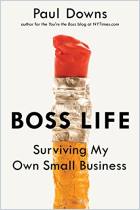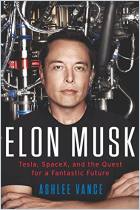Melden Sie sich bei getAbstract an, um die Zusammenfassung zu erhalten.

Melden Sie sich bei getAbstract an, um die Zusammenfassung zu erhalten.
Jonathan Waldman
SAM
One Robot, a Dozen Engineers, and the Race to Revolutionize the Way We Build
Avid Reader Press, 2020
Was ist drin?
The creation of a bricklaying robot is a testament to trial-and-error technological development.
Recommendation
SAM, the semi-autonomous mason, was the world’s first bricklaying robot, but technical and human obstacles impeded its acceptance in the traditional construction industry. In this engaging read, journalist Jonathan Waldman describes SAM’s trial-and-error path of experimentation, mistakes and lessons learned. Construction Robotics, which built SAM, simplified its operations and increased its reliability and speed – from laying a brick every 50 seconds to installing one faster than every nine seconds.
Summary
About the Author
Jonathan Waldman’s first book, Rust: The Longest War, was a Wall Street Journal Best Book of the Year.





















Comment on this summary